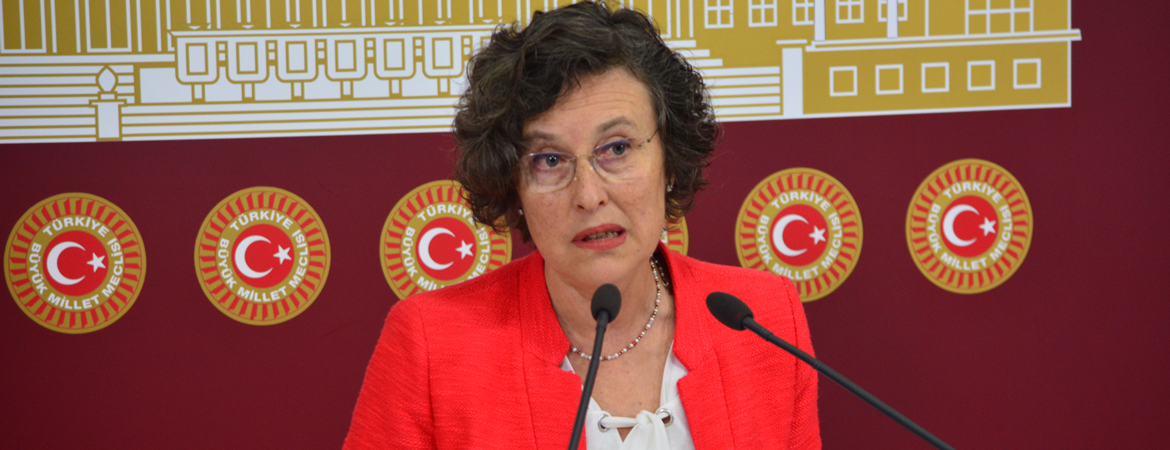
Our Parliamentary Group Deputy Filiz Kerestecioğlu gave a speech at the PACE's joint debate on the report regarding the implementation of ECHR judgements. Kerestecioğlu stated the following:
Mr/Ms President, dear colleagues,
First, I would like to thank reporter Mr Pierre-Yves LE BORGN, for bringing this crucial topic before the Council.
The ECHR is of great importance for countries in which a majority of its citizens, like Turkey, are obliged to fight for human rights. For this reason, as emphasized in the report, it is of great importance to protect the Court’s reputation and ensure that the judgments of the ECHR are executed effectively and within a short time.
We are aware that the European Court of Human Rights has repeatedly been criticized by extremist politicians and that its judgments against governments are constantly being used in the populist speeches of xenophobic politicians. But what makes a court convincing is its ability to hand down independent judgments despite the polemics of politicians and conflicts of interest between countries.
But unfortunately, I have to admit that the ECHR has not taken the necessary steps to prevent these violations in the face of recent human rights violations in Turkey. Despite the applications we have been introducing in order to address the situation of our detained deputies urgently, the Court still has not dealt with those applications and asked the Turkish Government for explanations. At the same time, the AKP government began to revoke the parliamentary memberships of the detained deputies one by one. The silence of the Court has encouraged the Government, and finally a deputy from the main opposition party was arrested in the past few weeks as well.
The Court rejected an application from one of the victims of the decree laws in the past days and has created a great outcry in Turkey’s democratic public opinion. The Court asked the applicant to go and apply to the State of Emergency Inquiry Commission which, however, has not yet started to work in Turkey as a domestic remedy which must be exhausted. But apparently the Court ignored criticism coming from many institutions, notably the Venice Commission, on this Inquiry Commission. Venice Commission has underlined that a mechanism to be established should be capable of giving individual treatment to all cases. Neither the State of Emergency Inquiry Commission nor the administrative courts are capable of providing these guarantees.
However, there were many precautions which the ECHR Court should have taken before stepping back and asking the applicants to apply to that Commission in Turkey. First of all, it should have ensured that the Commission in Turkey was indeed capable of providing an effective remedy.
Another important problem is that court proceedings in Turkey continue for long periods of time. This problem has negative impact on the effectiveness of the human rights protection mechanism. Moreover, the proceedings before the ECHR Court also continue for unacceptably long periods. So individuals will have to apply to A Commission whose effectiveness is in great doubt. Then they will have to exhaust lengthy domestic court proceedings. And only then they will be able to come before the Strasbourg Court and wait for many more years. This situation will not offer the victims the redress that they seek. This may sound like a cliché, but I must stress: Justice delayed is justice denied.
Finally, I would like to express again that I strongly support the report of Mr Pierre-Yves LE BORGN and the suggestions that every initiative that will contribute to the independence, authority and effectiveness of the Court. Especially it is of primary importance to take measures to ensure that the judges of the Member States comply with the decisions of the ECHR and that the decisions of the Committee of Ministers and the Department for the Execution of Judgments are more transparent. Thank you.
28 June 2017
